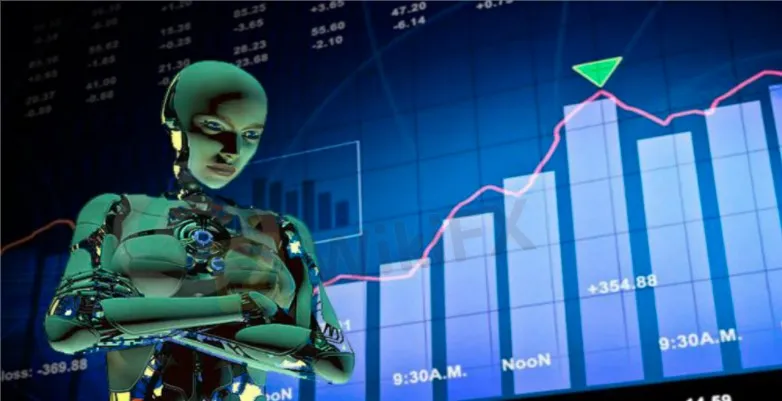简体中文
繁體中文
English
Pусский
日本語
ภาษาไทย
Tiếng Việt
Bahasa Indonesia
Español
हिन्दी
Filippiiniläinen
Français
Deutsch
Português
Türkçe
한국어
العربية
Why Should You Actually Use an FX Trading Algorithm
Abstract: ‘Algos Advance on FX’ noted, “many FX market participants”
Talk of trading algorithms that can be used by ordinary individuals has intensified in the past few years. But it‘s worth noting that it’s no longer just talk.
Talk of trading algorithms that can be used by ordinary individuals has intensified in the past few years. But it‘s worth noting that it’s no longer just talk. As our post ‘Algos Advance on FX‘ noted, “many FX market participants” have taken the leap “into the algo pool,” causing a fairly sharp rise in overall adoption. In other words, more ordinary individuals (as opposed to large companies and massive fund operators) are beginning to make use of trading algos in forex.
This is generally easy to view as a good thing. In the most basic sense, we understand algorithms to be more capable than humans of navigating complex trading markets. By extension, it‘s easy to expect them to produce more profits. But every now and then it’s worth stepping back for a moment and considering why people are opting for this route, beyond a vague notion of greater profitability. So — why should you consider using an FX trading algo?
The first and perhaps most important answer is that it‘s a matter of competition. Early in 2020, Traders Magazine did a fairly through write-up covering various aspects of trading algorithms. In the article, it was pointed out that “due to the speed and precision” required in modern markets, they are “dominated by sophisticated automated algorithms with powerful resources behind them.” This is a way of saying that these algorithms are out there, and that powerful players in the markets are using them to “dominate.” It is becoming more and more true that individual human traders simply can’t keep up with the pace at which these algorithms make profitable trades — meaning the best way, and perhaps the only way to compete is by using an algorithm yourself.

Disclaimer:
The views in this article only represent the author's personal views, and do not constitute investment advice on this platform. This platform does not guarantee the accuracy, completeness and timeliness of the information in the article, and will not be liable for any loss caused by the use of or reliance on the information in the article.
Read more

A Must-To-Watch Top Trading Pairs This 2025
Discover the top trading pairs to watch this week, including Bitcoin, Euro, USD, and more. Market trends, key resistance levels, and price movements analyzed.

Best Binary Options Indicators: Enhance Your Trading Strategy
Binary options trading involves predicting whether an asset's price will rise or fall within a specific timeframe. Unlike traditional investing, more specifically, binary options demand rapid decisions due to fixed expiry times (e.g., 60 seconds to 1 hour). For instance, speculating if EUR/USD will be above 1.0800 in the next five minutes. Success yields a fixed payout, while failure results in the loss of invested capital. Binary indicators distill complex market data—price action, volume, volatility—into actionable signals tailored for short-term trades. Indicators act as a compass, guiding traders to trends, reversals, and optimal entry points, thus enabling traders to detect market shifts for higher-probability decisions.

Forex BackTesting: Pros and Cons | Best Free Backtesting Software to Explore
Imagine you're driving from New York City to Philadelphia and want to know if your route is optimal, then you take two steps: Firstly, you gather the traffic records in the past five years, including traffic patterns, historic weather conditions, and holiday congestion records. Second, you run simulations of your proposed road to see if it is most efficient and fuel-saving before an actual trip.

Olymp Trade Review 2025: Is It Safe to Trade With?
Founded in 2014, Olymp Trade has been operating for over a decade, expanding its services and user base considerably, now offering focused trading in fixed-time trades (previously known as binary options in some regions) and Forex. Specifically, Olymp Trade operates two trading modes: fixed-time trades and forex mode. Fixed-time trades refer to trades with predetermined expiration times, where traders predict market movement directions. Payouts typically range from 70-90% of the investment amount. Forex Mode is a more traditional forex trading approach with variable leverage (up to 1:500 for experienced traders). At the same time, it allows for more sophisticated trading strategies with customisable take-profit and stop-loss orders.
WikiFX Broker
Latest News
TradingView Brings Live Market Charts to Telegram Users with New Mini App
Trump tariffs: How will India navigate a world on the brink of a trade war?
Interactive Brokers Launches Forecast Contracts in Canada for Market Predictions
Authorities Alert: MAS Impersonation Scam Hits Singapore
Stocks fall again as Trump tariff jitters continue
INFINOX Partners with Acelerador Racing for Porsche Cup Brazil 2025
Regulatory Failures Lead to $150,000 Fine for Thurston Springer
April Forex Trends: EUR/USD, GBP/USD, USD/JPY, AUD/USD, USD/CAD Insights
March Oil Production Declines: How Is the Market Reacting?
Georgia Man Charged in Danbury Kidnapping and Crypto Extortion Plot
Currency Calculator







